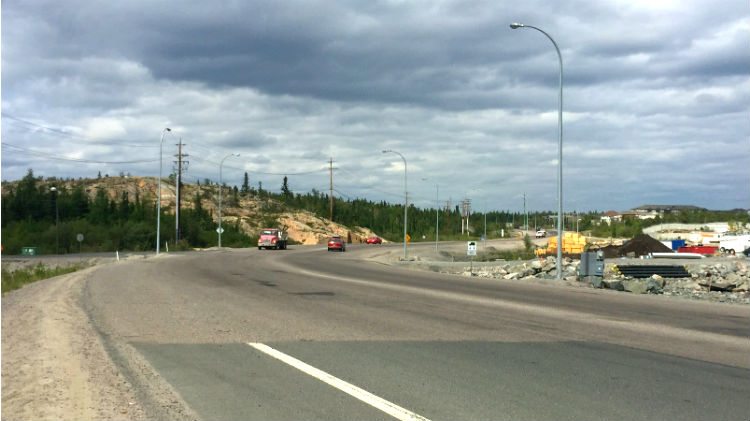Residents along Highway 3 and 4 could be left without any fire services by the end of the month.
Currently, the City of Yellowknife covers the area stretching along the Ingraham Trail. That coverage is set to expire on March 31, with no fire services lined up to replace it.
If the city extends their services, residents will have to pay. There are around 300 residents in the area. To keep the current fire services, they would have to pay around $5,666 in the first year and $4,000 annually after that.
Residents will have to pay extra fees if they actually require a call out. To have a fire crew attend a scene outside Yellowknife’s municipal boundaries, it will cost $1500, plus $2 per kilometre they have to travel, plus $500 for the first two hours, with each two hour block after that costing $200 and any overtime costs for firefighters working overtime.
Those fees could climb even higher if the city chooses to have their costs fully covered, says the Department of Municipal and Community Affairs (MACA).
A report from MACA says it’s unsustainable for Yellowknife Fire Services to cover the area around the Ingraham Trail and poses risks to people within the city by delaying response times.
If the city doesn’t extend its coverage, MACA says there are a variety of options, all of them with issues.
Creating an Ingraham Trail fire department would be cost prohibitive and wouldn’t help cover residents along Highway 3 or elsewhere in the territory.
One involves the Yellowknife Airport’s fire services being contracted to cover the area. But the current fire response services the airport has are required by the Canadian Aviation Regulations.
The document said Dettah Fire Services, which are currently only at a fire prevention level of quality, could be a long-term solution. But they wouldn’t be able to fill the gap in the interim.
The report also ruled out using Department of Environment and Natural Resources firecrews, because those staff only work seasonally during the peak period for wildfires.
“There are many remote locations across the NWT and Canada where structural fire response is not possible as it is viewed as being cost prohibitive,” the MACA report read.
Until services can be established, MACA says they are focusing on educating residents about how they can prevent fires.
“In these cases, residents are encouraged to take action(s) in preventing fires by putting measures in place that prevent fires, provide early notification and evacuation in the event of a fire, and protect property where safe to do so.”
Minister for MACA Paulie Chinna spoke in the Legislative Assembly in February, saying her department is still consulting with the City of Yellowknife about the issue.
The department has set up four consultation sessions at Dettah’s Chief Drygeese Centre from March 28 to 30. The sessions can also be attended virtually.





